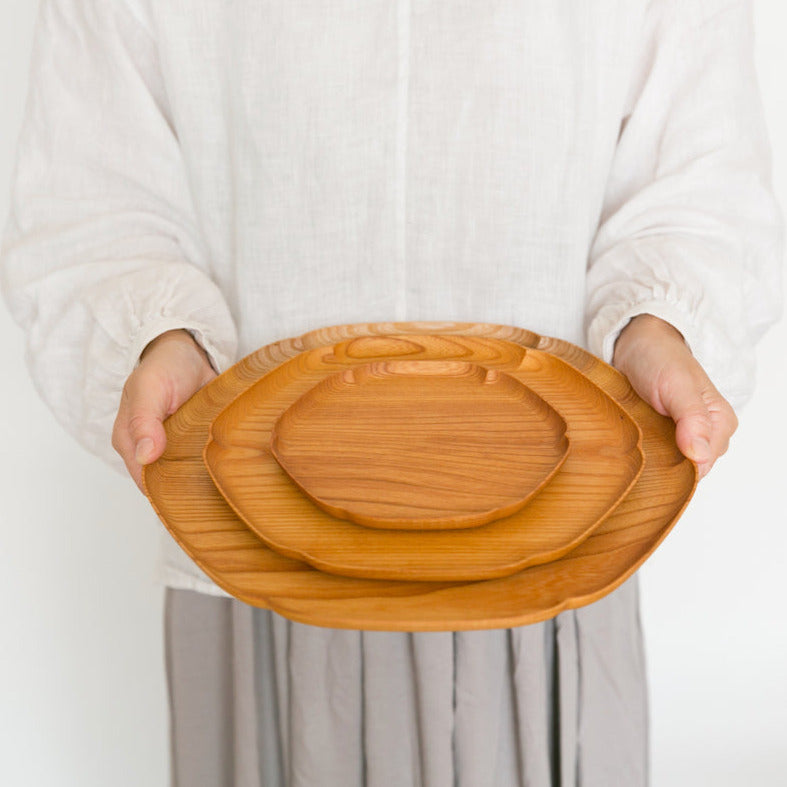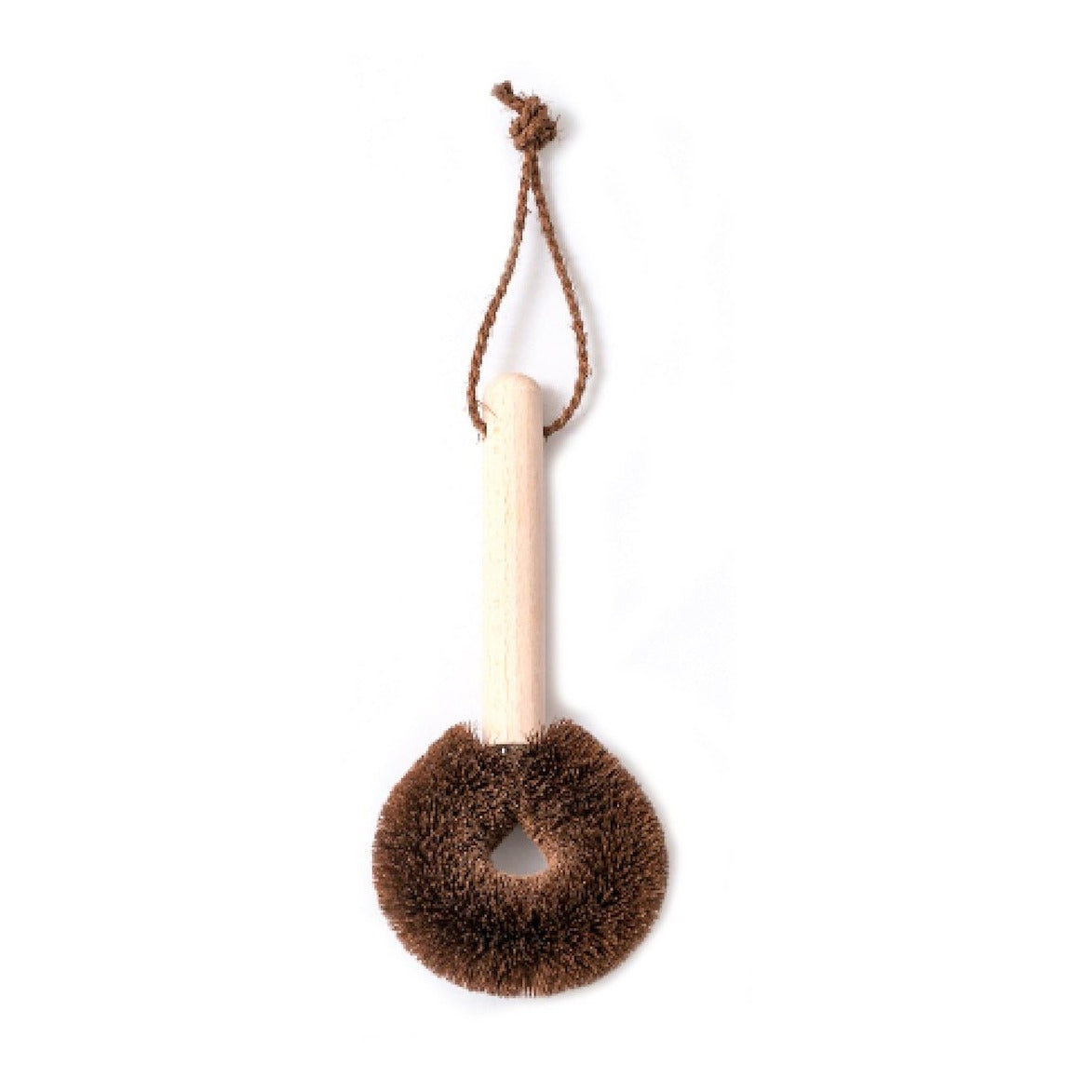
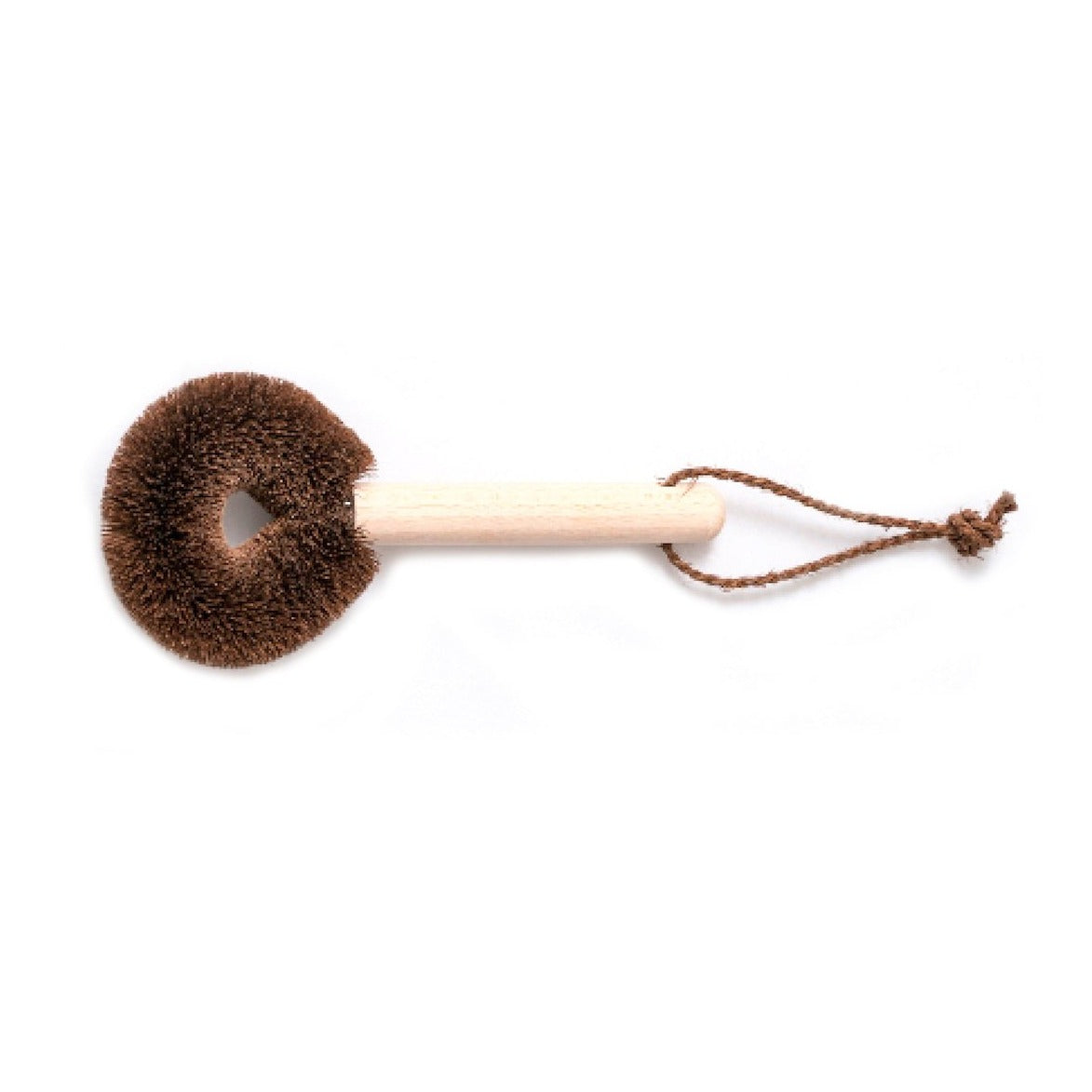
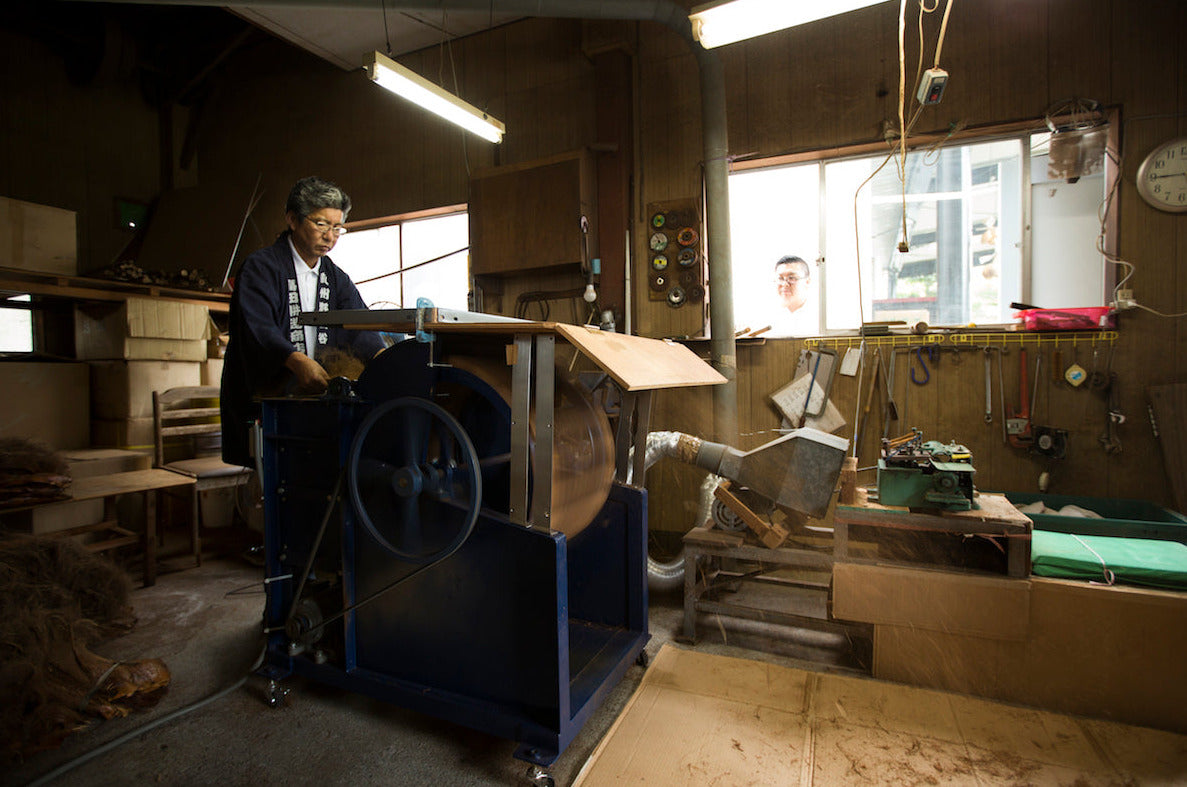
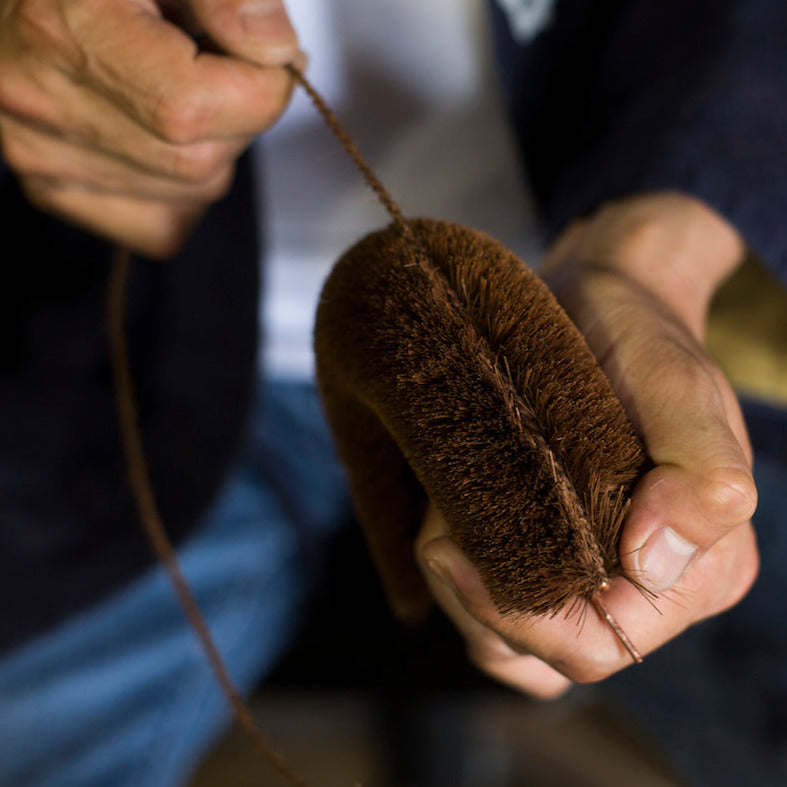
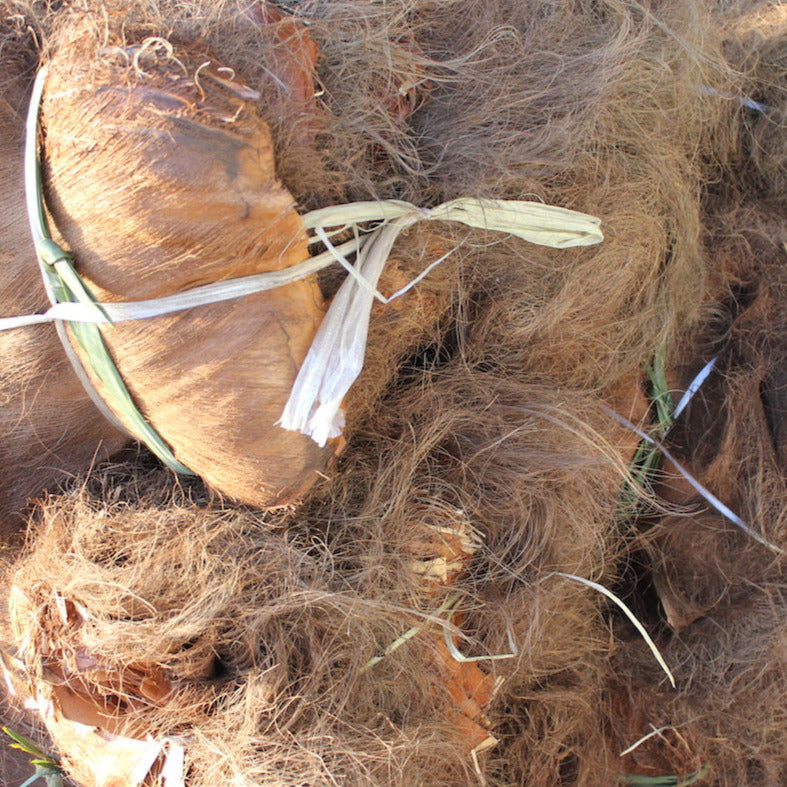
Cleaning brush for pans with beech wood handle Tawashi | Onige
- Material: Shuro (Trachycarpus fortune or windmill palm) bark fibre, beech, stainless steel .
- Dimension: 17 x 8 x 4.5cm
- Length of the stem: 10cm
- organic cultivation method.
- Handmade in Japan
 Sofort lieferbar
Sofort lieferbar
Bereits in 2-3 Werktagen bei dir.
Kostenfreier Versand ab CHF 80,-
Choose options





Beschreibung
Tawashi - natural brush with beech wood handle for gentle cleaning of all pans.
This is a special frying pan cleaning brush. A small part of the hemp palm has a particularly hard part called the "onige". This is the hardest scrubbing brush in Takada Kozo Shoten's range, using only the onige. It can be used not only for iron frying pans, but also for non-stick pans and even removes build-up from clay pots and grill pans. If you use an iron frying pan, scrub it immediately with a scrubbing brush while rinsing it under running water while it is still hot.Story
Tawashi are traditional Japanese scrub brushes made from the fibres of the windmill palm. For centuries, these types of brushes have been used in Japan to clean pots and dishes. With over seventy years of experience, the specialised artisans have honed their skills in making tawashi scrub brushes piece by piece. They have learned to source materials from trees grown in Wakayama Prefecture, whose bristles are much softer than palm fibres grown in other regions of the world. Despite their stiff appearance, these bristles, which are found only in Japan, are surprisingly gentle, making them perfect for cleaning fruit and vegetables as well as for bathing. When used as a body cleansing brush, dry or wet, Tawashi leave a pleasant, invigorating feeling on the skin.
Carefully selected, high-quality materials and traditional craftsmanship are the two essential ingredients that make up all our brushes. From a purely business perspective, it would undoubtedly be more efficient to manufacture the brushes by machine. But customers trust and rely on Takada products every day and expect them to last for decades. From this perspective, Takada is convinced that the past must provide the answers. Brushes are made by people for people - it has always been that way and it will always be that way. That is the commitment Takada has carried with it for seventy years, and one that you will pass on to the next generation.
In the past, Wakayama was a major producer of windmill palms, a mainstay of the local economy. But production has been drastically curtailed by cheaper imported windmill palms and substitute products such as oil palms. With fewer and fewer farmers to take care of them, windmill palm forests nationwide have shrunk dramatically. Takada believes that the first step to preserving this traditional industry for future generations is to protect the existing windmill palm forests in Wakayama. To this end, Takada has embarked on a project to nurture this important natural resource and have been growing high quality windmill palms for many years. From these, they select only the highest quality materials to make our body brushes. For your kitchen brushes and brooms, where durability is paramount, you use imported windmill palm fibres, known for their stronger, stiffer bristles.
All TAKADA products comply with the following European Community Regulation:
(EC) No 1935/2004 OF THE EUROPEAN PARLIAMENT AND OF THE COUNCIL Materials and articles intended to come into contact with foodstuffs
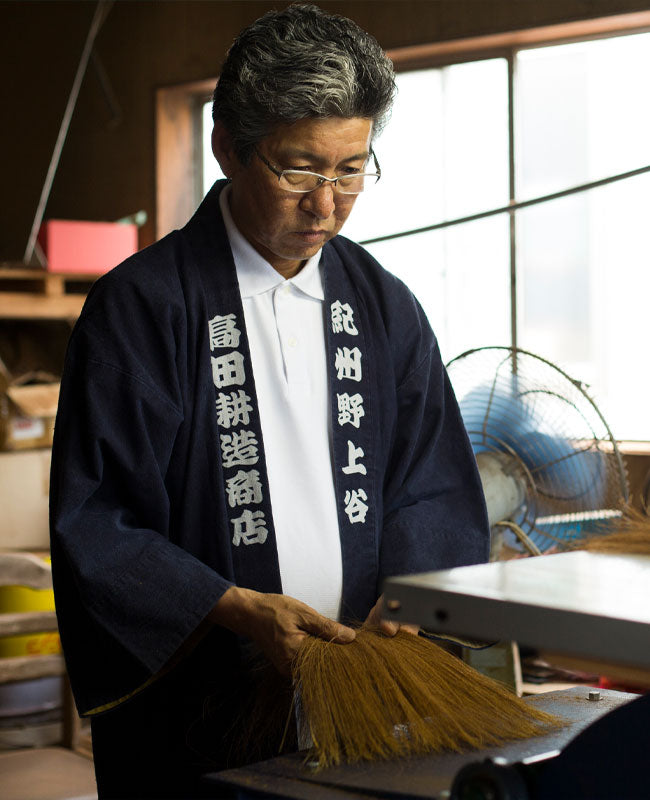
Die Story zu TAKADA | Japanese Cleaning Brushes
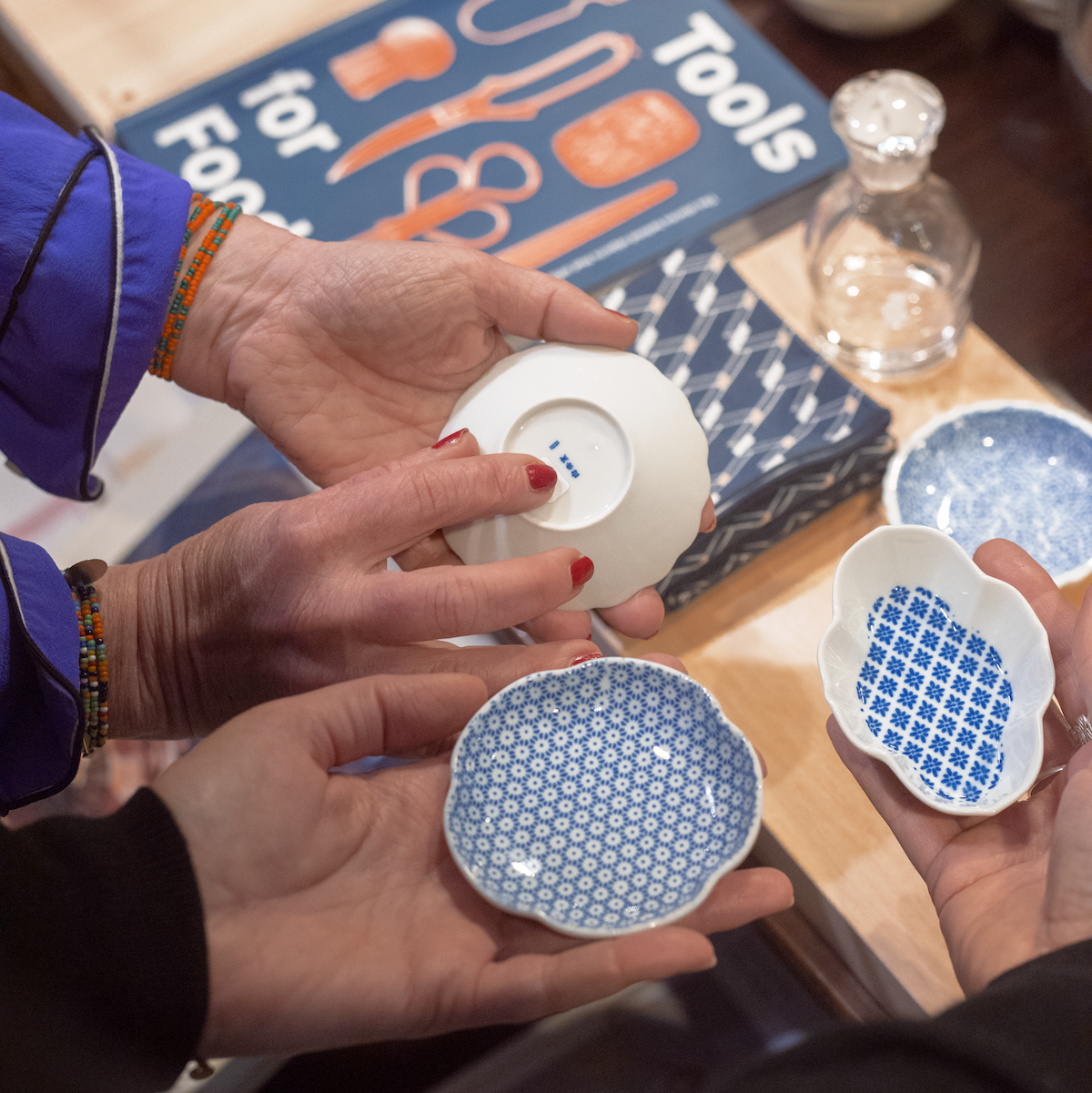
Wollt ihr wissen wer hinter ASANDRI steht
«Wir glauben, dass die Kombination von grossartigem Design und handwerklichen Können wichtig ist. Deshalb unterstützen wir Handwerker weltweit, um ihre Fähigkeiten und Handwerksbetriebe für viele weitere Generationenzu erhalten.»
Kontaktiere uns: info@asandri.com
